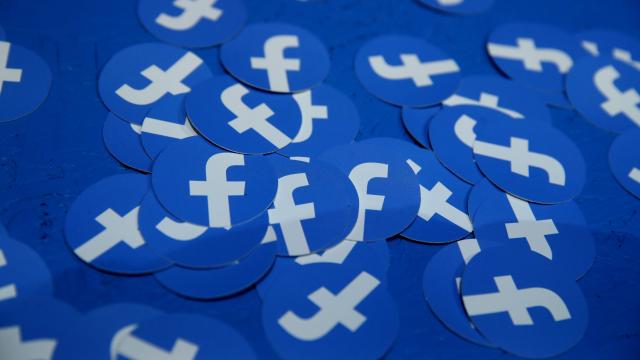On the same Wednesday that Facebook is reportedly facing a major state-led suit over its anticompetitive practices, the company seems to be falling back on the tried-and-true tactic of pointing at Apple instead.
[referenced id=”1656783″ url=”https://gizmodo.com.au/2020/12/how-to-read-apples-upcoming-app-privacy-nutrition-labels/” thumb=”https://gizmodo.com.au/wp-content/uploads/2020/12/10/eqwpcyidnkypqr3wupev-300×169.jpg” title=”How to Read Apple’s Upcoming App Privacy ‘Nutrition Labels’” excerpt=”When Apple software chief Craig Federighi first announced in June that the company would be issuing app-specific “nutrition labels” as part of its privacy-focused iOS14 update, there was reason to be cautiously optimistic. The basic pitch — that these labels would give us a chance to peruse an app’s data-collecting…”]
Axios first reported that the Facebook-owned messenger WhatsApp was firing back against the newly mandated privacy labels that Apple began requiring from app developers on December 8th. Per WhatsApp, it’s unfair (and downright anti-competitive) that while countless apps in Apple’s ecosystem are going to be branded by this new update, Apple’s native iMessage app that comes prebaked into people’s phones — bypassing the app store entirely — won’t get the same treatment.
To give a brief recap here, these labels were first announced back at this year’s Apple developer conference, and were envisioned as a way for folks to peruse the permissions any given app might request without needing to actually go through downloading that app first. The labels might tip you off that a given banking app collects “financial info” from you, or that a mapping app collects your precise location data. While devs needed to meet the December 8th deadline, it’s unclear when these labels will be rolling out onto the app store proper.
The anticompetitive angle comes in, according to WhatsApp, when you consider how creepy a label warning of future “data collection” can sound. Giving potential users a brief snapshot of the details being hoovered from their phones, the company explained, could be enough to spook them from joining their platform entirely, and opting for a competitor like say, iMessage — a service with privacy policies that aren’t well defined.
If these claims sound familiar, it’s because they’re pretty darn similar to another an earlier Facebook-Apple feud. Back in September, Facebook was among the critics arguing that Apple’s plan to require consent before tracking users across third party services doesn’t benefit user privacy as much as it benefits Apple’s own data-collection business.
“While providing people with easy to read information is a good start, we believe it’s important people can compare these ‘privacy nutrition’ labels from apps they download with apps that come pre-installed, like iMessage,” a WhatsApp spokesperson told Axios. “We think labels should be consistent across first and third party apps as well as reflect the strong measures apps may take to protect people’s private information.”
WhatsApp helpfully outlined what those “strong measures” look like in a blog post put out the day before the December 8th deadline, along with detailing exactly why it requires the different flavours of data it does. This includes financial information (it’s for the app’s ecommerce functions), contact lists (to “make it easier for you to message your friends and family”), and your coarse location (apparently this gets gleaned from your phone’s country and area code). This sort of nuance, WhatsApp argued, is what gets lost in the kind of quick snappy labels that Apple’s mandating.
WhatsApp does have a point here. When you condense a company’s labyrinthian privacy policies into something that can be quickly digested from your iPhone screen, some details are going to get lost — which is why we actually wrote our own guide for reading these new labels whenever they roll out. But Facebook also has a track record of exploiting this sort of nuance to pull some pretty invasive manoeuvres in the past. It’s worth assuming that any move that makes us aware of the data we’re giving up — to WhatsApp or to anyone else — is probably the last thing that Facebook wants.
